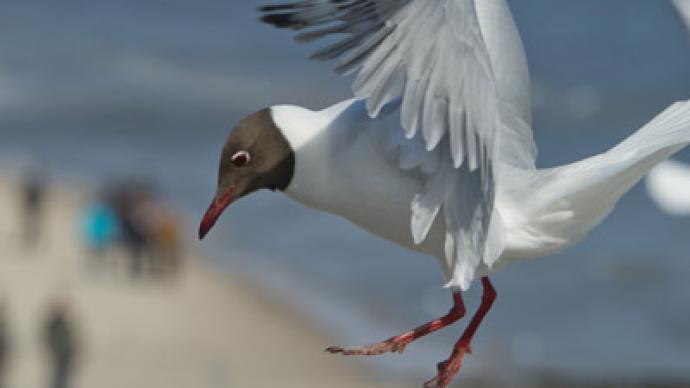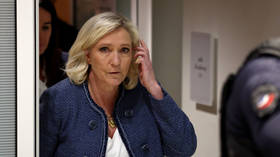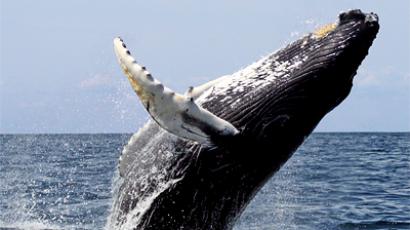Angry Birds: Argentina to shoot seagulls to save whales

Argentine officials are concerned about the growing seagull population, which has developed a habit of pecking at surfacing whales. Authorities want to shoot the birds, but activists say measures should be taken to contain seagull populations.
Officials blame the seagulls. Environmentalists blame humans. All agree, however, that the threatened southern right whales are under attack, and must be saved. If no measures are taken, the whales may change their migration route, upsetting the region’s biosphere.Seagulls off the coast of Chubut province in southern Argentina seem to have taken a page from Alfred Hitchcock’s famous horror movie ‘The Birds’ – they discovered that pecking at whales coming up for air leaves open wounds. If seagulls continue to peck away at skin and blubber, they can seriously injure the whale.Marcelo Bartelotti of National Patagonia Centre, a government-sponsored conservation agency, said in an interview with the Associated Press that “It’s not just that the gulls are attacking the whales, but that they’re feeding on them, and this way of feeding is a habit that is growing and becoming more frequent.”Conservationists worry that the amount of damage inflicted by seagulls is multiplying as the gull population grows each year. Baby whales are particularly vulnerable to the attacks.Argentine authorities worry that this development is hampering tourism: Whale-watching is one of the most popular attractions in this part of the country. But with seagulls swooping down to prey on whales, what used to be a magnificent sight is now turning into a horrific display.Whales have grown weary of the airborne attacks – rather than breaching the water to display their tails, they come up just long enough to breathe.Bartelotti offered a solution to the problem. A 100-day plan to shoot down seagulls that have learned to attack whales received support from the government of the Chubut province. According to Bartelotti’s plan, each downed bird would be recovered along with the ammunition, preventing possible damage to sea life.Shooting the gulls is “surely not the most pleasant measure, but it’s necessary to do something to control a situation that has been growing after many years of inaction,” said Chubut Environmental Minister Eduardo Maza.Environmentalists, however, believe the issue at the root of the problem is humans, who have created enough garbage to let the seagull population grow uncontrollably.Activists insist that the only way to remedy the situation is to deny the birds food by closing open-air garbage dumps around the gulf, and by stopping fishermen and a nearby seafood plant from dumping scraps into the water.Chubut authorities promised to address those issues as well: “All the garbage in the protected Peninsula Valdes area that isn’t recyclable will be properly disposed of, which will enable us to mitigate the open-air garbage dumps,” Maza said.Southern right whales have recovered to about eight percent of their original numbers since becoming a protected species worldwide. From July to December, hundreds of the whales flock to the relatively calm and warm waters off the coast of Chubut to give birth and raise calves.But if the seagull situation isn’t improved, environmentalists say the whales may stop coming.














